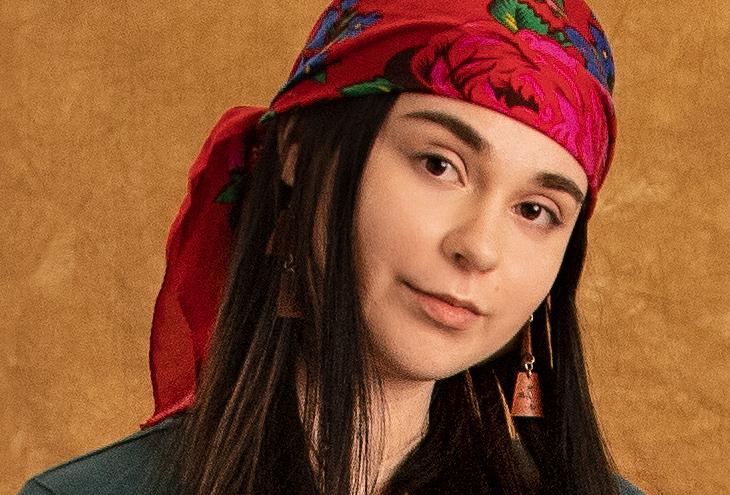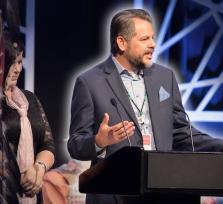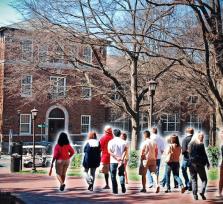Danielle Boyer always has loved “cooking up” robots. So when she started public high school in her hometown of Troy, Mich., after years of homeschooling and volunteering as a science instructor and mentor to younger kids, she immediately joined a FIRST (For Inspiration and Recognition of Science and Technology) robotics team. It didn’t go exactly as Boyer hoped. In fact, it was a very difficult period for her. “I was a girl, and a coder, and the guys made it clear they really didn’t want me there.”
She tried a robotics team at a different high school. The experience was the same, but Boyer persevered. She started a volunteer elementary school STEAM program called Benzene Buddies, and she learned a lot about the world of robotics competitions. Today, she mentors 35 FIRST robotics teams, two of them all girls. Yet the landscape really hasn’t changed much. “People will still tell me that girls are not supposed to be in engineering,” Boyer says. “But my experiences taught me how to stand up for myself, fight for other girls, and fight for the changes I want to see.”
When Boyer was 17, she attended her first world robotics conference. She was the only one from her high school team to show up — everyone else went to the prom. Boyer was approached by a representative from SOLIDWORKS, a 3-D software that she and her team were certified to use. “I was so excited to tell the representative about our projects and kept asking her to hold on so I could show her one more thing, and then one more thing.”
It was the beginning of a meaningful relationship with SOLIDWORKS and its parent company, Dassault Systèmes. The company featured Boyer in an Instagram story from the conference. The next month SOLIDWORKS featured her in a “Women in Engineering” series. That was followed by invitations to keynote a national conference and speak on podcasts and panels. “They are the reason I am able to do what I do now,” Boyer says.
She decided to take some time off after graduation before pursuing mechanical and electrical engineering degrees and ultimately a PhD in biorobotics. Boyer’s initial goal was to widen her reach by teaching Indigenous, minority, and underrepresented communities through the books she writes and curriculum and robots she creates. “I thought, why not design an organization that would outlast me — one where people who care about the same things I do, particularly diversity, can participate?”
In 2019, Boyer started her nonprofit, The STEAM Connection. After getting her domain name and designing a logo, she moved her classes, books, and robot designs to the site. Her flagship project is EKGAR, Every Kid Gets a Robot. While robot kits often cost over $500 to manufacture, Boyer figured out how to create an educational robotics kit for $18.95 and has already distributed over 4,500 kits to children for free, primarily to girls and BIPOC students. The kit is a game changer in rural and Indigenous locations without internet because Boyer created a way for the robot to work without Wi-Fi. “We need to consider and address the gaps,” she says. “And we need to pay attention to what the teachers are saying. If they are asking for funding or books or robots, we have to listen and get involved.”
In November, Boyer celebrated her 20th birthday by releasing a new educational robot she invented, aptly named TWENTY. Open source and available for free on STEAM Connection’s website, TWENTY is 3-D printed, uses cereal boxes, and even has a glowing eye.
“Dress it up, make it fun, make it creepy-looking!” Boyer says.
Another project just underway is a photo series that will showcase minorities in STEAM and their projects. “I know it makes a difference when you can see someone in your culture doing interesting work in science and robotics,” she says. “I hope it will help a lot of students feel they belong in STEAM.”
In 2020, Boyer was recognized for her service and advocacy by several prestigious organizations, including being named a L’Oréal Paris Women of Worth. That award came with a cash prize that Boyer donated to AISES. “I asked myself, when do I feel like a Women of Worth?” she explains. “And the answer 100 percent is when I am within the AISES community, having that beautiful intertribal community where the focus is on STEM.”












